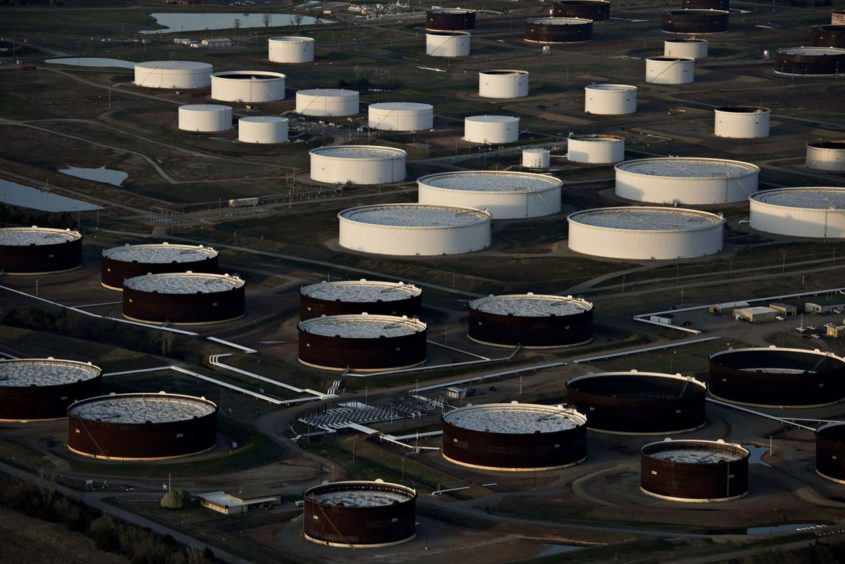
Oil climbed at the start of the week’s trading as investors weighed tight product markets including gasoline, and a weaker dollar.
West Texas Intermediate topped $111 a barrel following four weekly gains, the longest such run since February. Gasoline and diesel prices have rallied to records ahead of the start of the US driving season, which begins in about a week. Money managers have also been boosting their bullish crude bets.
In remarks reported at the weekend, Saudi Arabia signaled it will continue to support Russia’s role in the OPEC+ group of producers, undermining US-led efforts to isolate Moscow for its invasion of Ukraine, the Financial Times said. The kingdom was hoping to work out an agreement with OPEC+ which includes Russia, Energy Minister Prince Abdulaziz bin Salman told the newspaper.
Oil has surged this year on rising demand and the complex global fallout from Russia’s invasion. The rise in energy costs has contributed to rampant inflation, prompting central banks to raise rates and stoking investor concern growth will slow. At the same time, China has imposed a series of painful lockdowns to quell Covid-19 outbreaks, hurting Asia’s largest economy.
An added lift for crude came from a weakening dollar, which makes the commodity cheaper for holders of other currencies. The greenback was lower on Monday following a drop of 1.4% last week, the most since November 2020.
“Amid the softer-dollar background and China-reopening trade, it skews favorably for oil,” said Stephen Innes, managing partner at SPI Asset Management Pte. Heading into the US summer driving season, the focus will be on a ramp-up in refinery production, he added.
Prices
- WTI for July delivery rose 0.8% to $111.15 a barrel on the New York Mercantile Exchange at 7:01 a.m. in London.
- Brent for July settlement added 0.9% to $113.60 a barrel on the ICE Futures Europe exchange.
The picture across China remains mixed. In Shanghai, officials have laid out the criteria to categorize parts of the commercial hub as low-risk for Covid-19 as they look to end a two-month lockdown, with no new cases outside quarantine being reported. Beijing, however, reported a record number of cases, reviving concern that the capital may face a lockdown.
Oil markets remain in backwardation, a bullish pattern that’s marked by near-term prices trading above longer-dated ones. The difference between WTI’s two nearest December contracts, for this year and in 2023, was near $13 a barrel, up from about $11 a barrel a month ago.
Still, oil may have a ceiling of about $110 a barrel given China’s flagging demand, with economic growth reeling from Beijing’s efforts to stamp out Covid-19, according to an outlook from Bloomberg Intelligence. Bloomberg Economics has cut its full-year China growth forecast to 2% from 5.7%.